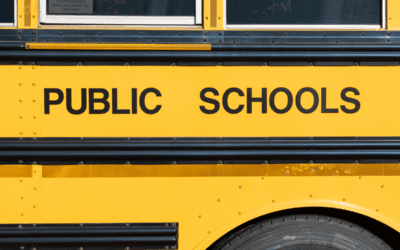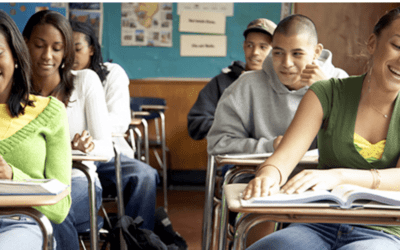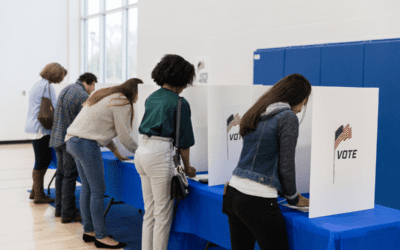
In 2017, a federal court ruled the state legislative districts Wisconsin Republicans drew in 2011 were so excessively partisan, they were unconstitutional.
The Proof?
Wisconsin has a partisan bias score of 14.8, according to a State Democracy Research report, which means that in an election where Democrats and Republicans both receive 50% of the vote, Republicans will win 64.8% of seats in the legislature, while Democrats will win just 35.2%.
We first saw this in 2012, when Republicans won 46% of the presidential vote, but 60% of seats in the Assembly. It happened again in 2014, when Republicans got 52% of the vote for governor, but 63% of Assembly seats. And we saw it even worse in 2016, when Donald Trump and Hillary Clinton finished in a near-statistical statewide tie, yet Trump won 63 of the state’s 99 Assembly districts and 23 of the state’s 33 Senate districts.

The Problem?
By packing Democratic voters into a handful of districts, Republicans have “secured control of the Assembly under any likely future electoral scenario for the remainder of the decade” and “entrenched the Republican Party in power.” And those are the courts’ words, not ours.
According to political scientists at Binghamton University, Wisconsin Democrats need to win 55 to 56 percent of the statewide vote to gain majority control of the state Assembly, while Republicans only need to win 44 to 45 percent. These numbers reflect the baked-in-advantage the GOP has created for itself.
The Legal Problem
These “excessively partisan” maps are still in use. With their current 4-3 Republican majority, the Wisconsin Supreme Court greenlit another decade of unfair maps, approving the GOP’s 2021 maps. And last year, the US Supreme Court took the unprecedented step of getting involved, too: it upheld the Republican maps, while saying Democrats were unconstitutionally factoring race into theirs. Similar to 2011, both court interventions dismissed simple attempts to make districts fair (like adding a sixth district to densely-packed, Black-majority Milwaukee).
“Allowing partisan legislators to redraw their own districts creates a clear conflict of interest,” the Harvard Political Review observed, noting Wisconsin’s current maps are among the most heavily skewed to one party of any plan in the country.

The Solution?
April 4th. Four candidates are running for a seat on the Wisconsin Supreme Court, and two have made it clear they support fair maps and will factor that belief into future cases.
Milwaukee County Judge Janet Protasiewicz and Dane County Judge Everett Mitchell have both vowed to ensure every voter counts equally.
“I could not sit back and watch extreme right-wing partisans hijack our Supreme Court,” Protasiewicz has said, of her decision to run.
Mitchell hopes to become the state Supreme Court’s first Black justice, which Democrats hope could help add that overdue sixth district in Milwaukee.
“I believe our state deserves a justice that reflects the diversity, ideas, and values of our entire state,” he said.
What You Can Do
Vote! Whoever wins Wisconsin’s open Supreme Court seat will replace retiring Justice Patience Roggensack and determine the ideological direction of the court. The other six justices can generally be divided into blocks of three conservatives and three liberals.
“So let’s be clear here,” Protasiewicz said, when asked about Wisconsin’s gerrymandered districts at this week’s candidate forum. “The maps are rigged– bottom line. Absolutely, positively rigged.”
“I believe the gerrymandering decision was wrong,” she continued. “I can’t ever tell you what I would do on a particular case, but I can tell you my values and common sense tell you that it’s wrong.”
Mitchell agreed. “We all have values, and it is important to you to know our values so you can decide who you want to be sitting in that black robe making decisions about the values of our state.”
He then spoke emotionally about the power of the courts to make positive change, referencing the Voting Rights Act and Brown v. Board of Education.
“You can use the law as a force for good. You can use the law as a force for change and making people’s lives better,” he added.
Click here to learn more about the candidates running for Wisconsin State Supreme Court.
And click here to make sure you’re registered to vote!

Support Our Cause
Thank you for taking the time to read our work. Before you go, we hope you'll consider supporting our values-driven journalism, which has always strived to make clear what's really at stake for Wisconsinites and our future.
Since day one, our goal here at UpNorthNews has always been to empower people across the state with fact-based news and information. We believe that when people are armed with knowledge about what's happening in their local, state, and federal governments—including who is working on their behalf and who is actively trying to block efforts aimed at improving the daily lives of Wisconsin families—they will be inspired to become civically engaged.


Opinion: Many to thank in fair maps victory for Wisconsinites
On February 19, 2024, Governor Tony Evers signed into law new and fair state legislative maps, bringing hope for an end to over a decade of...

Opinion: Empowering educators: A call for negotiation rights in Wisconsin
This week marks “Public Schools Week,” highlighting the dedication of teachers, paras, custodians, secretaries and others who collaborate with...

Op-ed: Trump’s journey from hosting The Apprentice to being the biggest loser
Leading up to the 2016 election, Donald Trump crafted an image of himself as a successful businessman and a winner. But in reality, Trump has a long...

Not just abortion: IVF ruling next phase in the right’s war on reproductive freedom
Nearly two years after the US Supreme Court overturned Roe v. Wade, another court is using that ruling to go after one of the anti-abortion right’s...





